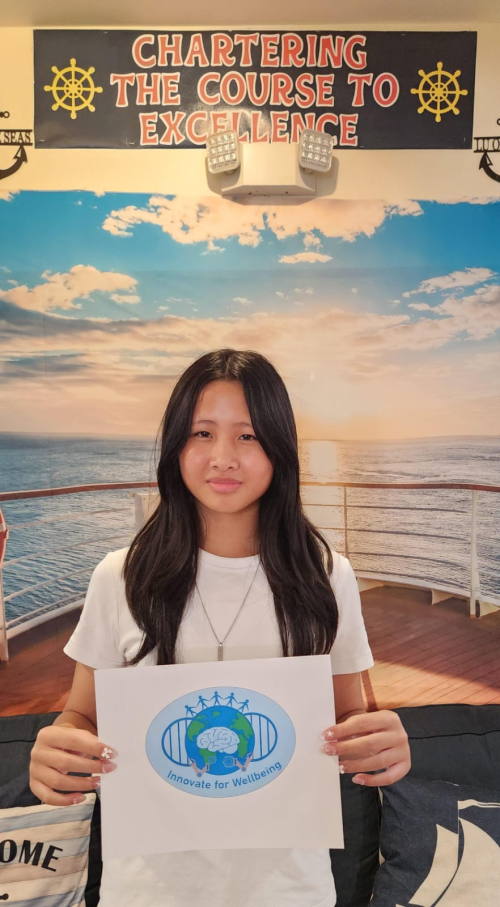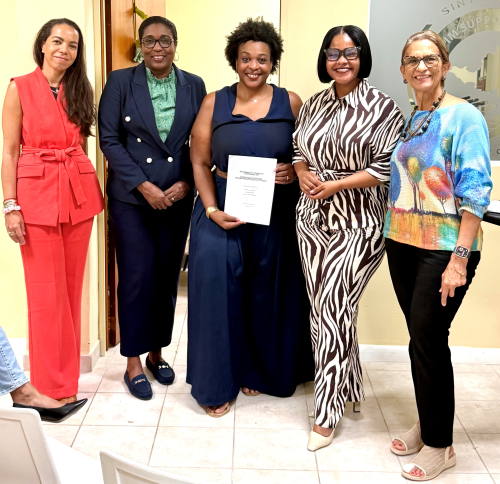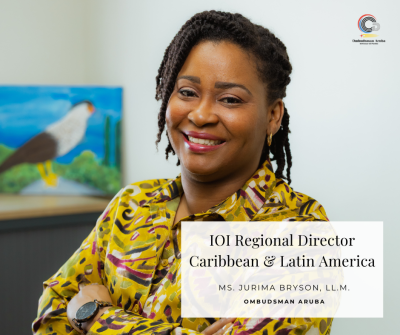 PHILIPSBURG:--- The Sint Maarten Science Fair Foundation is pleased to announce the winner of its 2026 Poster Competition, held under the theme “Innovate for Wellbeing.” The poster competition forms part of Science Week 2026, which will take place from March 9 to March 13, 2026, and will conclude with an award ceremony on March 21, 2026.
PHILIPSBURG:--- The Sint Maarten Science Fair Foundation is pleased to announce the winner of its 2026 Poster Competition, held under the theme “Innovate for Wellbeing.” The poster competition forms part of Science Week 2026, which will take place from March 9 to March 13, 2026, and will conclude with an award ceremony on March 21, 2026.
This year’s competition invited students to explore how science, technology, engineering, arts, and mathematics (STEAM) can be leveraged to enhance physical, mental, social, and environmental well-being in their communities.
The winning poster was created by Fang Yu Cai, a grade 8 student from Learning Unlimited. The poster was recognized for its excellent concept, strong symbolism, and its strong alignment with the competition theme.
The design features an infinity symbol encircling the Earth, representing continuous innovation and the belief that improvement is always possible. DNA strands woven into the symbol, along with robotic and mechanical elements, highlight the role of science and technology in human progress. Silhouettes of people joined above the globe emphasize collaboration and community engagement, underscoring that well-being extends beyond physical health to include mental wellness, while promoting growth and transformation for St. Maarten.
Fang Yu, also known as Yuyu, said about her winning artwork: “As part of our Digital Art class assignment, we were given the opportunity to take part, and I decided to participate in creating a design. While working on it, I started thinking about innovation and well-being, and I connected those ideas to the brain and the world. I used my imagination to show how our thoughts and creativity can make a difference. When I found out I won, I was really surprised. It made me proud, but it also made me feel like I can push myself to do even better next time.”
The submissions were evaluated by a panel of judges consisting of Kadyjah Lake of Artisticfolio, Loic Bryan of Artistic Drive, and Fiel Efenio of Driven Media, who assessed the posters based on creativity, relevance to the theme, and overall impact.
Science Week 2026
The Poster Competition is one of several activities planned for Science Week 2026, which aims to inspire curiosity, innovation, and critical thinking among students and the wider community. Planned activities include:
- An Opening ceremony with a spotlight interview and panel discussion centered on the theme Innovate for Wellbeing
- Hands-on field trips to STEAM-related locations
- The annual Science Fair, showcasing student research projects and demonstrations from regional partners
- An award ceremony recognizing the achievements of participating students
The Sint Maarten Science Fair Foundation congratulates Fang Yu Cai, as well as all participating students, teachers, and schools, for their enthusiasm and commitment to science and innovation. The Foundation also extends its appreciation to its judges, partners, sponsors, and volunteers for their continued support.
The winning poster will be integrated as part of the official branding for 2026 Science Week.





 PHILIPSBURG:--- “There’s something powerful about women shaping policy.” These were the words of Cassandra Richardson, Director of Victim Support Services (VSS), as her team welcomed members of the Women’s Caucus of Parliament to the VSS Headquarters for a private engagement focused on survivor protection, legislative reform, and strengthening national support systems.
PHILIPSBURG:--- “There’s something powerful about women shaping policy.” These were the words of Cassandra Richardson, Director of Victim Support Services (VSS), as her team welcomed members of the Women’s Caucus of Parliament to the VSS Headquarters for a private engagement focused on survivor protection, legislative reform, and strengthening national support systems. ORANJESTAD, ARUBA:--- Oranjestad, Aruba – The Ombudsman of Aruba, Ms. Jurima Bryson, LL.M., has been elected Regional Director for the Caribbean & Latin American Region of the International Ombudsman Institute (IOI).
ORANJESTAD, ARUBA:--- Oranjestad, Aruba – The Ombudsman of Aruba, Ms. Jurima Bryson, LL.M., has been elected Regional Director for the Caribbean & Latin American Region of the International Ombudsman Institute (IOI). The Netherlands:--- Professor Francio Guadeloupe, endowed professor of Public Anthropology of Kingdom Relations, will deliver his inaugural lecture at the University of Amsterdam on Thursday, March 12, 2026. He will deliver this inaugural lecture to accept the Chair of the same name, funded by the Ministry of the Interior and Kingdom Relations (BZK). Guadeloupe, born in Aruba, works for the Royal Netherlands Institute of Southeast Asian and Caribbean Studies (KITLV) and the University of Amsterdam. His research focuses on how people in different parts of the Kingdom shape their lives, often moving around, and what this means for their identity.
The Netherlands:--- Professor Francio Guadeloupe, endowed professor of Public Anthropology of Kingdom Relations, will deliver his inaugural lecture at the University of Amsterdam on Thursday, March 12, 2026. He will deliver this inaugural lecture to accept the Chair of the same name, funded by the Ministry of the Interior and Kingdom Relations (BZK). Guadeloupe, born in Aruba, works for the Royal Netherlands Institute of Southeast Asian and Caribbean Studies (KITLV) and the University of Amsterdam. His research focuses on how people in different parts of the Kingdom shape their lives, often moving around, and what this means for their identity. 



